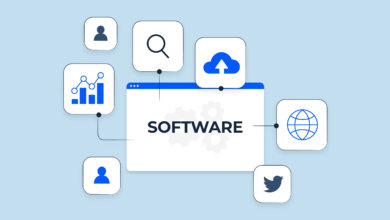Is Your Business Prepared for Seasonal Fluctuations?

Dealing with fluctuations in sales is all part of running a business. When you build up a good customer base, you can expect fairly steady sales, but there will still be certain times of the year when you see a big increase in customers. For most companies, this is around the holiday period. However, depending on your business, it might come at different times of the year. For example, a sunglasses company isn’t going to experience a Christmas rush, but they will see a big influx of sales at the beginning of the summer.
Dealing with these fluctuations can be a big challenge but you must get it right. If you let people down by giving bad service or making them wait a long time for deliveries, you won’t see those customers again. However, if you impress them by being prepared for an unexpected increase in sales, you gain more repeat customers, and the business grows.
These are some of the best things you can do to manage seasonal fluctuations in your business.
Prepare for Increased Shipping Demands
The most important thing you can do is prepare for increased shipping demands. People expect products to be delivered quickly, and they won’t care whether you’re more busy than usual or not. If you can’t meet demand, customers will get frustrated quite quickly. So, you need to be ready to expand your shipping operation at the drop of a hat. One of the best ways to do that is to use job boards where you can advertise shipping work (learn more). You post your jobs on the job board and experienced drivers can pick them up and take them on for you. This is a brilliant way to find the drivers you need at short notice.
It’s not just the extra drivers and vehicles that you need, you also need to fulfill orders faster. Consider hiring temporary staff to package and prepare orders for delivery. If you don’t expand the operation in both areas, you will still experience delays.
Forecast Demand by Looking at Trends
Knowing what kinds of products are likely to sell helps you plan better so you can make sure that you are prepared. The best way to do that is to look at trends to forecast demand. Check your sales figures from the previous year and look at what kinds of seasonal fluctuations there were. Make note of which products sold best at which times of the year, so you can adjust your inventory and make sure that you’re not running out of things when they are most in demand.
Naturally, there will be differences every year and you can never fully predict what is going to happen. However, you can get a general idea by looking at past trends.
Manage Customer Expectations
Managing expectations is so important in business. If you promise the world and then don’t deliver, you end up with a lot of frustrated customers on your hands. So, if increased demand is going to slow down deliveries or make it harder to get a customer service representative on the phone, be upfront about that. People are understanding about slight delays if you prepare them for it beforehand, but if you tell them that everything is operating as normal and then let them down, that’s when you have a problem.
Setting expectations about busy periods can also help you spread out orders. If you email existing customers letting them know that you’ll be busy in the next month or so, you encourage people to make orders early. This is a great way to take some pressure off the seasonal fluctuations.
Invest in Customer Service Tools
Maintaining excellent customer service is crucial in busy periods. If you have people waiting on hold for ages or waiting days and days for a response to an email, you will soon be inundated with bad reviews online. This seriously damages your reputation and scares away potential new customers, so you must avoid this situation.
Hiring additional customer service staff can help you here, but investing in customer service tools is a much better long-term solution. Live chatbots, for example, can deal with customer queries and answer basic questions, without the need for a real person. This means that people get instant responses for most things, and if they have a more complex problem, they can be passed over to a real customer service representative.
If you get a lot of phone calls from customers, an automated menu system will help you manage calls and direct people to the right department. Ultimately, this means that people are connected to somebody that can help them much quicker. Investing in these kinds of tools will help you manage seasonal rushes and improve customer service overall.
Seasonal rushes are something that all businesses have to deal with. Keep these tips in mind and you will be better prepared to manage it when it does happen.
For more valuable information visit this website



